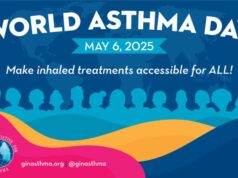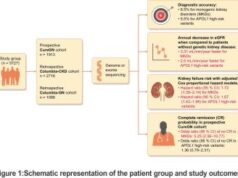About eight persons have died from COVID-19-related complications at the Lagos State isolation centre in Yaba, in the last one week.
This is just as reports say I5 patients were admitted into the Intensive Care Unit of the facility in one night.
A source at the Infectious Disease Hospital, Yaba, who spoke on condition of anonymity, said the patients, comprising males and females, were admitted into the same ward due to a shortage of bed space.
The situation at the IDH facility was so serious that the treatment centre is reported to be running out of oxygen due to the rising cases of infection.
“The ward is full. Fifteen patients were admitted in one night. The CACOVID ward will require some repairs due to damages caused by the rains. Both male and female patients were admitted to one ward because there is no space to accommodate them in different wards.
“The wards previously used to treat TB patients – A Ward, B Ward – are full. They started using the B Ward last Saturday (July 24). The TB patients were discharged. The situation is bad.
“It (Delta variant) is serious and people are dying. The death rate is high. Eight patients died during one shift last week. It is serious; it’s an emergency. When the patients are brought in sick, their family members can be heard crying for help to save their loved ones, and that forces us to run helter-skelter.
“The patients are local (Nigerians) and many of them were referred from private hospitals. They may have been taken to a general hospital before they were referred to the isolation centre,” the source said.
According to Sunday PUNCH, the dearth of personal protective equipment at the centre was causing disquiet among health workers, many of whom had to double their face masks while attending to patients to reduce the risk of being infected by the virus.
“The situation is still the same thing. We go in with our uniforms. There is no N95 but we prefer to double our face masks before going in. The risk we take is many, but if we don’t take it who will? We are risking our lives. We have to stay away from our kids throughout the period.
“But when we risk our lives, our efforts are not appreciated. The food we get here (at IDH) is poor but we have to boost our immunity. On my own, I buy Vitamin C, Vitamin D, and calcium to treat patients. There is no PPE and N95. We are not coming (to treat patients) and we need more hands, and we cannot leave people dying,” one of the health workers said.
It was further gathered that while the Coalition Against COVID-19 (CACOVID) ward was undergoing remedial work after the rains in July exposed leaky roofs, many of the workers discouraged by the state of the centre and the attitude of the state government towards their welfare chose to stay away, a development our correspondent learnt had further worsened the shortage of adequate manpower at the treatment centre.
Some of the frontline health workers who participated in the first and second waves were said to have left the country in search of better work conditions.
The source at the IDH said, “The Health Service Commission has not been on the ground. The workload is too much. We heard there was a meeting and they (authorities) said HSC workers were doing their normal job but they (workers) disagreed. So, they said an agreement would be signed, but I don’t know the content of the agreement. If the CACOVID ward is fixed, there may not be anyone to work there and we need more hands. Even without the CACOVID ward, we still need more hands. It contains more than 100 beds. So, if two nurses manage about 50 patients, it would not augur well.”
When contacted, the Commissioner for Information, Mr Gbenga Omotoso, while reacting to the claims, said he would have to contact the Ministry of Health.
He, however, said the state government was working to prevent a third wave.
“I will have to find out from the health ministry and today is a Saturday. Those who can give us information may not be there now. But one piece of advice I will give to you is that anytime they (health workers) tell you things, go there and see for yourself. Now, they are talking about isolation centres,” Omotosho added.
But when asked whether journalists were granted access to the treatment centres and payment vouchers for the frontline workers, the commissioner said, “It is not all about payment; that is what I am telling you. All of the time they say they have been asked to leave the isolation centre, they have not been paid for three months and all that, as if the money is part of their salary.
“As I speak with you today (Saturday), the isolation centre has about one-tenth (of its capacity) filled up. It is not as if people are so busy now as they were during the first and second waves. We are trying to do everything so we don’t have a full-blown third wave,” the commissioner said.











